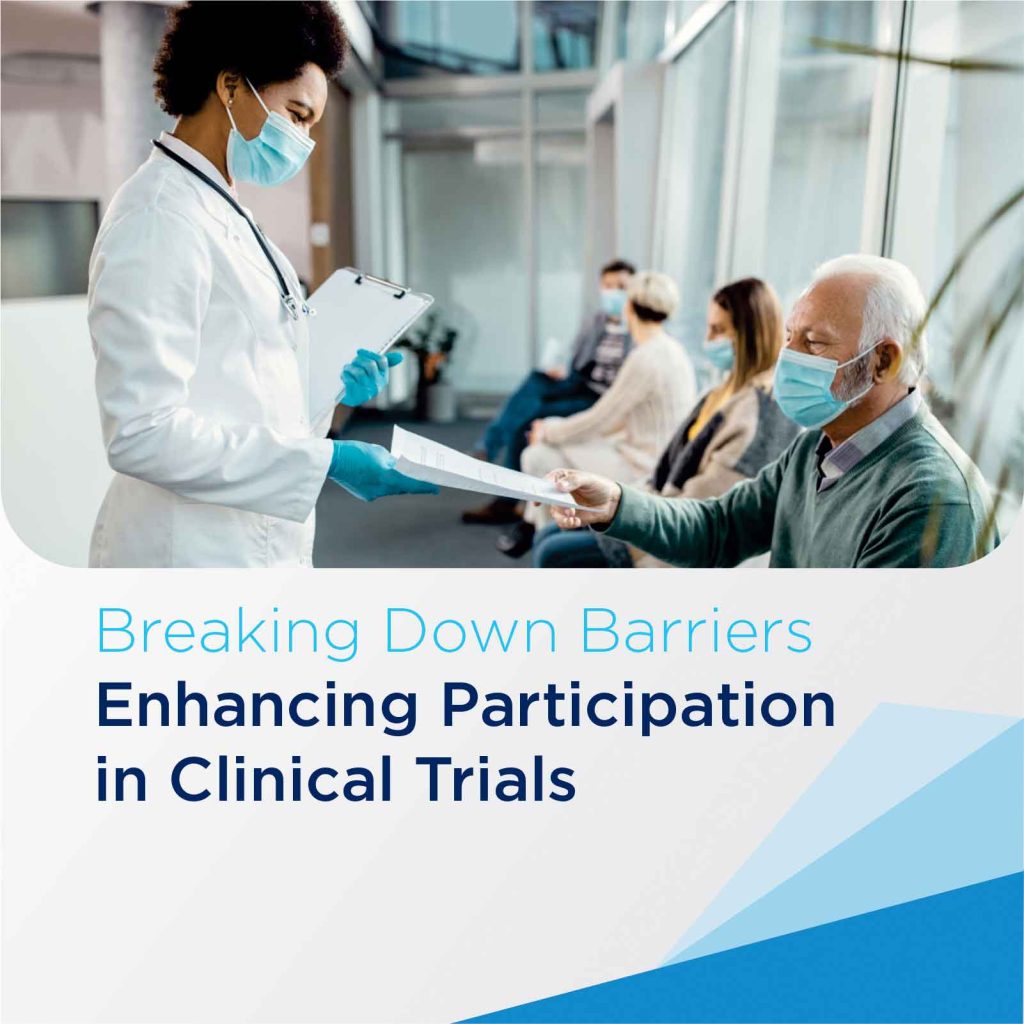Clinical trials are the cornerstone of medical advancement. They allow us to test new drugs and treatments, refine existing ones, and ultimately, improve the lives of patients. However, participation in clinical trials is often low, due to a variety of barriers that can be challenging to overcome.
In this blog, we will explore some of the key barriers to clinical trial participation and discuss strategies for breaking them down. We will also highlight some of the benefits of participating in clinical trials, in the hope of encouraging more people to get involved.
Barriers to Clinical Trial Participation
There are many reasons why people may be hesitant to participate in a clinical trial. Some of the most common barriers include:
- Lack of awareness and understanding: Many people are simply unaware of what clinical trials are or how they work. They may also have misconceptions about the risks involved.
- Logistical challenges: Clinical trials often require multiple visits to a research site, which can be difficult for people who live far away or have busy schedules.
- Financial concerns: Some trials may not cover all of the costs associated with participation, such as travel or lost wages.
- Eligibility criteria: Trials often have strict eligibility criteria, which can exclude many potential participants.
- Fear of the unknown: The uncertainty inherent in any trial can be daunting for some people.
Strategies for Enhancing Participation
Despite these challenges, there are several things that can be done to encourage more people to participate in clinical trials. These include:
- Raising awareness and education: Educating the public about clinical trials, their importance, and the safeguards in place can help to dispel myths and misconceptions.
- Making trials more accessible: Decentralized trials, which use telehealth or satellite sites, can make participation more convenient for people who live far away from research centers.
- Providing financial support: Trials should cover all costs associated with participation, such as travel, meals, and childcare.
- Expanding eligibility criteria: Whenever possible, trials should be designed to be more inclusive, especially for underrepresented populations.
- Building trust and transparency: Researchers should clearly communicate the risks and benefits of trials to potential participants and be available to answer any questions they may have.
Benefits of Participating in Clinical Trials
There are many potential benefits to participating in a clinical trial. These include:
- Access to cutting-edge treatment: Trials offer patients the chance to receive the latest and most promising treatments, often before they are available to the general public.
- Contributing to medical research: By participating in a trial, you are helping to advance medical knowledge and improve the lives of future patients.
- Personalized care: Trial participants often receive more intensive monitoring and care from their healthcare team.
- Empowerment and satisfaction: Knowing that you are making a difference can be a rewarding and empowering experience.
Clinical trials are essential for developing new treatments and improving patient care. By breaking down the barriers to participation and highlighting the benefits, we can encourage more people to get involved and help to shape the future of medicine.
Call to action
If you are interested in learning more about clinical trials, please visit RMI Clinical Trials Unit (CTU). You may also be able to find information about our ongoing trials and other relevant information.








